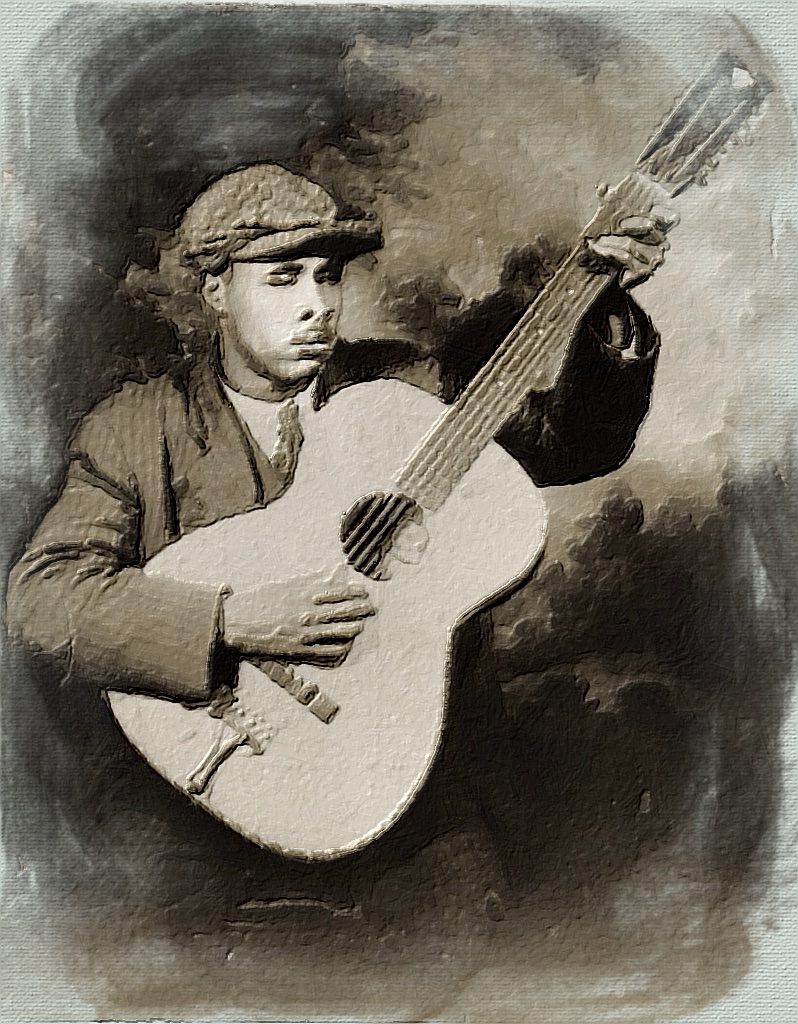
Blind Willie’s Blues
A 54-minute documentary film about the life, times, and music of blues legend Blind Willie McTell.
With music masters Taj Mahal Stefan Grossman,historian Daphne Duval Harrison,and Atlantic Records founder Ahmet Ertegun.
Written and produced by David Fulmer
“Nothing less than the economic, social, and
historical evolution of America’s indigenous music.”
— Video Librarian
From IMDB:
Blind Willie’s Blues is a retrospective bio-documentary about the life, the times and the historic mucical compositions in the Blues Genre that were created and performed by the artist who was known as Blind Willie McTell. Blind from birth, his family surname was McTier, and he was named Willie Samuel McTier. But, the ethnic dialectics of the turn-of-the-century southern language caused the colloquial enunciation of his birthname of McTier to be pronounced as ‘McTell’; the name that the noted and famed writer, composer and musical performer would adopt as his own as he plied his talented artistic craft in juke joints, taverns and on street corners across the vast southern USA in the 1900’s. Blind Willie’s delta-style country blues & gospel musical legacy is a cultural icon that is defined by his unique inimitable guitarists’ skills of his own creation and invention in style and technical execution of technique in application that are heralded in this filmic tribute by Director/Producer David Fulmer. The impoverished vagabond hand-to-mouth life and the unparalleled original creative stylings of this blues virtuoso is attested to by several accomplished present-day artists’ of musical performance fame, and some noted scholars from the halls of musical academia, as well as reflective rememberances extolled by family and friends who actually personally knew and associated & interacted with the unpretentious, historically undersung legend, Blind Willie McTell.(HenriDeE DeBardeleben)
Blind Willie McTell (born William Samuel McTier; May 5, 1898 – August 19, 1959) was a Piedmont blues and ragtime singer and guitarist. He played with a fluid, syncopated fingerstyle guitar technique, common among many exponents of Piedmont blues. Unlike his contemporaries, he came to use twelve-string guitars exclusively. McTell was also an adept slide guitarist, unusual among ragtime bluesmen. His vocal style, a smooth and often laid-back tenor, differed greatly from many of the harsher voices of Delta bluesmen such as Charley Patton. McTell performed in various musical styles, including blues, ragtime, religious music and hokum.
McTell was born in Thomson, Georgia. He learned to play the guitar in his early teens. He soon became a street performer in several Georgia cities, including Atlanta and Augusta, and first recorded in 1927 for Victor Records. He never produced a major hit record, but he had a prolific recording career with different labels and under different names in the 1920s and 1930s. In 1940, he was recorded by the folklorist John A. Lomax and Ruby Terrill Lomax for the folk song archive of the Library of Congress. He was active in the 1940s and 1950s, playing on the streets of Atlanta, often with his longtime associate Curley Weaver. Twice more he recorded professionally. His last recordings originated during an impromptu session recorded by an Atlanta record store owner in 1956. McTell died three years later, having suffered for years from diabetes and alcoholism. Despite his lack of commercial success, he was one of the few blues musicians of his generation who continued to actively play and record during the 1940s and 1950s. He did not live to see the American folk music revival, in which many other bluesmen were “rediscovered.”
McTell’s influence extended over a wide variety of artists, including the Allman Brothers Band, who covered his “Statesboro Blues,” and Bob Dylan, who paid tribute to him in his 1983 song “Blind Willie McTell,” the refrain of which is “And I know no one can sing the blues like Blind Willie McTell.” Other artists influenced by McTell include Taj Mahal, Alvin Youngblood Hart, Ralph McTell, Chris Smither and the White Stripes. (Wikipedia)
– Hallgeir